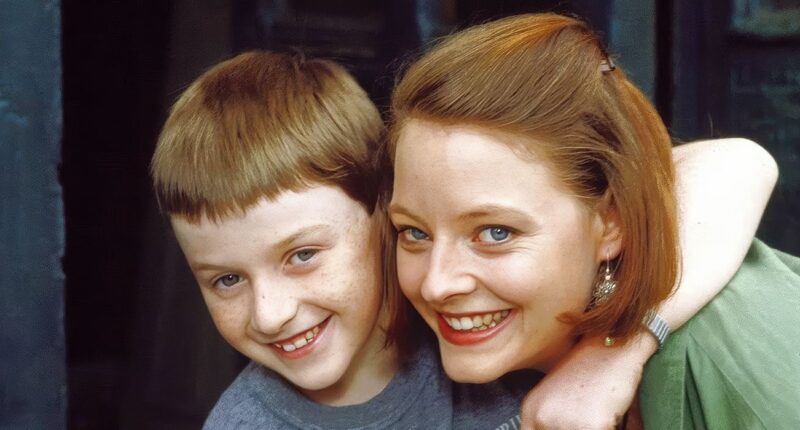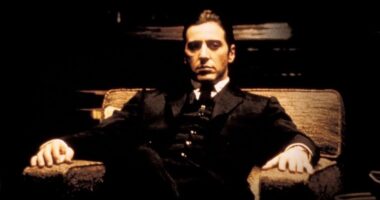Jodie Foster was wise beyond her years when she began her acting career as a child actor. As a teenager, she displayed maturity and brilliance with performances in Disney’s original Freaky Friday and Martin Scorsese’s crime drama Taxi Driver. Foster’s articulate approach to acting would be channeled behind the camera when she made her directing debut with 1991’s Little Man Tate.
Hot on the heels of her Oscar-winning role as Clarice Starling in The Silence of the Lambs, Foster pivoted away from playing women in peril by directing and starring in a small film that was the closest to capturing her true essence as an extraordinary talent. Though she is the billed lead, the breezy coming-of-age drama sees Foster utilize young actor Adam Hann-Byrd, in his film debut, as her true avatar, playing the title character dealing with the burden of being a child prodigy. Critic Roger Ebert praised Foster for her grounded approach in telling a child’s tale while adding her personal touch to a warm but earnest story.
What Is ‘Little Man Tate’ About?
At age seven, Fred Tate (Hann-Byrd) is already a whiz at math, reading, and piano playing. Born and raised without a father in the picture, Fred lives with his supportive blue-collar mother, Dede (Foster), though he has a habit of not calling her Mom. Despite excelling in the classroom, Fred is often bullied by his classmates for being different and has virtually no friends he can relate to. Fred’s genius attracts the attention of a once young prodigy-turned-psychologist, Dr. Jane Grierson (Dianne Wiest), who talks Dede into enrolling the boy in a specialized school with other gifted kids. Through his encounters with unique personalities such as a magician-obsessed math whiz (P.J. Ochlan) and a free-spirited college student (Harry Connick, Jr.), Fred discovers there’s more to life than academics. As Jane exploits Fred as a test subject rather than a child, tensions grow between the psychologist and Dede, who prefers raising her son with a normal upbringing.
With a blend of light comedy mixed with grounded family movie themes, Little Man Tate was unique for a time when high-concept movies about kids equaled big bucks at the box office. At the film’s core is the power struggle between Fred’s mother and the intellectual doctor. Neither role is portrayed as a traditional archetype. Their struggle comes from a place of uplifting Fred’s potential, but through completely different approaches. For the overly protective Dede, she simply wants Fred to be a kid like anyone else. Jane, however, sees an opportunity to harness his genius, even though she’s unable to bring herself to the level of understanding Fred’s alienation from other kids.
‘Little Man Tate’ Mirrors Jodie Foster’s Life in the Spotlight
With brilliant direction by Foster, Little Man Tate is the rare kind of movie that preaches the balance of stressing a child’s education and allowing them to understand how the world works. This is a theme relatable to the director/star’s life when she was pulled between her career and academics at the height of her teen years in movies. Foster often shunned the spotlight in favor of life experiences before breaking out into adult performances with The Accused and The Silence of the Lambs. Those feelings are directly channeled into Hann-Byrd’s performance to show that even in spaces designed to highlight Fred’s genius, there’s an uneasiness about being put into the limelight. One scene in particular shows Fred on a television show with other young prodigies, where the pretentious host makes condescending remarks to the boy, giving practical responses to his questions. As a director, Foster shows that kids shouldn’t be forced to grow up too fast just because they’re gifted. They need to breathe on their own and be accepted for who they are at their core.
The film goes beyond the dramatic triangle between Fred, Dede, and Tate. Of all the supporting characters featured in Little Man Tate, Connick Jr.’s Eddie shares the most compelling subplot with the boy genius. Without a paternal figure in Fred’s life, Eddie fills the void because, like Dede, he comes from basic means. Initially, he provides a touching bond with Fred that allows for the human connection he lacks with other kids his age. But when Fred catches Eddie in an adult situation, their friendship is almost as close to a doomed romance when the age gap causes reality to hit home for the young boy. Yet, Connick, Jr. doesn’t try to make Eddie too mean-spirited despite Fred’s disappointment. Eddie doesn’t regret their friendship even though he doesn’t want to feel like “a babysitter” to him. It’s something that Fred does not get to experience with any other potential friends in the film: a gentle respect for two people living different lives.
For an impressive directorial debut Foster never tries to overplay the sentimental nature of Little Man Tate, nor does she seek to villainize the adult characters who try to influence the boy. She brings empathy to every character, regardless of class status, to make it relatable to audiences, young and old.










